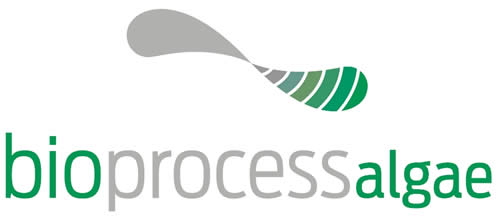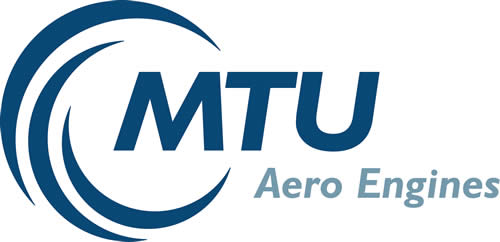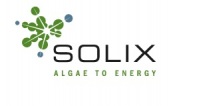ABO Platinum Members
 |
 |
 |
 |
|
 |
 |
 |
ABO Gold Members
 |
 |
 |
 |
 |
 |
ABO Corporate Members
 |
 |
||||
|
|
|
 |
 |
|
|
|
|
 |
|
|
|
|
|
|
|
|
|
|
|
|
|
|
|
|
||
|
|
 |
 |
|||
 |
 |
 |
|||
 |
 |
 |
|
||
|
|
 |
 |
|||
| |
ABO Supporting Organizations
 |
 |
 |
|
by Carrie Cox on
by Carrie Cox on
The Educating and Developing workers for the Green Economy (EDGE) Initiative was started with funding from the California Department of Labor to create and launch training programs in anticipation of the growth of the biofuels and industrial biotechnology sectors. Based on the EDGE Biofuels Science Technician Certificate run in 2011 and 2012, the San Diego Center for Algae Biotechnology (SD-CAB) and UC San Diego Extension is launching two Specialized Certificates in Biofuels, starting in January 2013.
You can learn more about the new 2013 EDGE Biofuels Certificates and Scholarships at http://algae.ucsd.edu/edge.html.
Changes for 2013 include funding for around 20 students to receive 50% scholarships for either of the Biofuels Certificate programs. A second scholarship application round will likely be announced in early February. The lecture courses will now also be entirely online. Lab courses will be taught in an intensive format on the UCSD campus for 4 weeks during the summer, with some labs taught in the evening to minimize disruption to students’ employment. The program does have some limited student housing and meal plans available on campus for those not based in San Diego to attend the summer labs. International students are welcome. And students also enroll in individual classes, rather than the whole certificate.
by Carrie Cox on
by Carrie Cox on
Addition of major traditional industry leaders closes year of sweeping progress for organization advancing algae as a source of sustainable, domestically-produced commodities
MINNEAPOLIS—(January 7, 2013)—New memberships in the Algae Biomass Organization, the trade association for the algae industry, reflected a wider range of industries in 2012, driven by the increasing impact of algae technology as an economical and environmental source of sustainable fuels, chemicals, food and other valued-added products. New members included representatives from a range of industries, including United Airlines (aviation), The Scouler Company (agriculture), Duke Energy (energy), Church & Dwight (consumer packaged goods), SABIC (chemicals and fertilizer) and Mars Symbioscience (food & nutrition).
During the course of the year, ABO added more than 150 new members for 2012 and 2013, including 99 that signed up during the Algae Biomass Summit this past September in Denver, Colorado.
“These inspiring new membership numbers reflect the growing recognition that algae-based technologies and products have a significant role to play in the sustainable production of a range of commodity products, including fuel, feed and food applications, novel chemicals, human health and nutrition and many others,” said Mary Rosenthal, the organization’s executive director. “While algae-derived fuels have been much of the early focus of investors and industry, there’s no doubt that there is incredible opportunity in many other market segments. Our growing, and increasingly diverse, membership reflects this reality.”
ABO’s newest platinum level members in 2012 were: United Airlines and DLA Piper. New Gold members in 2012 were: Duke Energy and Mars Symbioscience. New Corporate memberships in 2012 included: Church & Dwight, Keller and Heckman LLP, Fluid Imaging Technologies, Inc., MicroBio Engineering, Inc., SABIC, POS Bio-Sciences, GreenField Ethanol, Inc., Georg Fischer LLC., Texas AgriLife Research, and Harvel Plastics. Corporate memberships joining around the Summit in Denver were Solutions 4CO2, The Scoular Company and Evodos. More than 130 others joined ABO in 2012 as individuals from academic, business and lab entities.
Algae industry highlights in 2012 included the first retail availability of algae-based biodiesel in California; the successful commissioning of Bioprocess Algae’s plant that produces algae for animal feed and nutritional markets; the commencement of operations at the world’s first commercial demonstration algae-to-energy facility; the recognition of algae as agriculture by Arizona and Ohio legislatures; research proving saltwater-grown algae can eliminate the need for fresh water; the deployment of algae wastewater treatment systems; and numerous technological breakthroughs in algal strain development, including the production of anti-cancer drugs from algae.
About the Algae Biomass Organization
The Algae Biomass Organization (ABO) is a 501 c(6) non-profit whose mission is to promote the development of viable commercial markets for renewable and sustainable commodities derived from algae. Its membership is comprised of people, companies and organizations across the value chain. More information about ABO, including its leadership, membership, costs, benefits and members and their affiliations, is available at the website:www.algaebiomass.org.
by Carrie Cox on
As part of the bi-partisan “Fiscal Cliff” legislation passed by Congress and signed by President Obama algae-derived fuels are, for the first time ever, a “qualified feedstock” under section 40 of the United States Code, meaning that producers of algal fuel are eligible for a $1.01 per gallon tax credit.
This is a big victory for the algae industry and has been a key legislative priority for ABO since our founding in 2008.
By leveling the playing field, this legislation will help foster the continued investment in algae technology companies as well as accelerate the commercial production and the sale of algae-based fuels. The bill also includes language that extends a special depreciation allowance on biofuel plant property to producers using algae.
Colorado’s KUNC public radio has some perspective on what the new policy will mean for algae research and commercialization.

